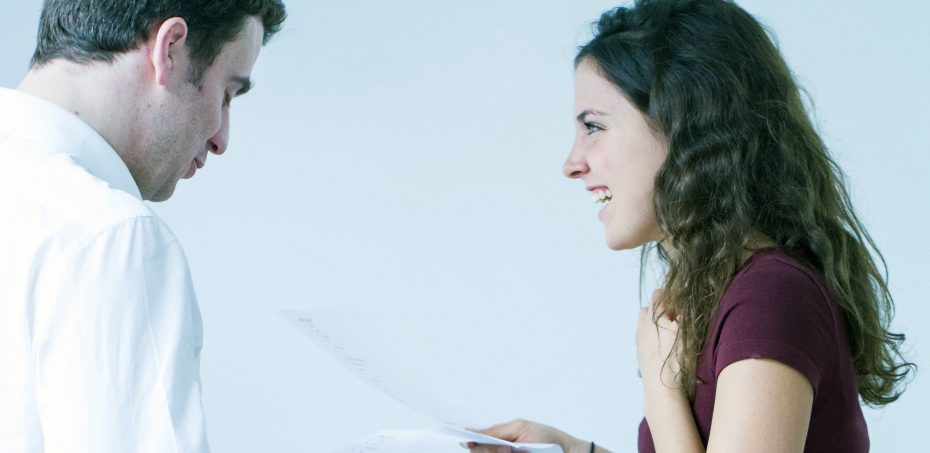The voice is one of the most important tools for actors, adding nuance and quite literally breathing new life into texts. But taking the time and making the effort to train the voice isn’t just the difference between a good performance and a goosebump-inducing showstopper, it’s crucial for the vocal health of actors – not just when they deliver lines, but in their everyday lives.
Actor and City Academy Voice Training expert, Harriet Whitbread, gives us her top ten voice work tips for thespians, screen actors and all performers alike, or anyone who experiences plenty of day to day physical demands on their voice. Have a read, and find out how to strengthen and take care of your voice, whether it’s for stage whispering or belting out a musical theatre number, through practical tips and mindful practice.
 1. Always warm-up. Do this before every audition, every rehearsal and every performance. Even five minutes makes a big difference, so try to fit in some mindful voice work every day.
1. Always warm-up. Do this before every audition, every rehearsal and every performance. Even five minutes makes a big difference, so try to fit in some mindful voice work every day.
2. Practise sight reading. This is when you recite books or scripts you’ve never read before, out loud. It’s an essential part of almost any audition and the more you do, the better you get – remember to look up at the end of thoughts, this will help you be more convincing.
3. Breathe at punctuation. It may sound obvious but punctuation divides text into thoughts, helping you make sense of it. So it’s important to breathe at punctuation to gain a better understanding of the character’s thoughts. Be careful though, if you breathe when there is no punctuation, you will be in danger of unintentionally transforming that speech into a list.
4. Relax the jaw. This is so important, as it creates room in the mouth for the tongue to move freely, which is the part of our mouth that actually creates the shapes for us to articulate sounds, so it really helps with oral resonance. Try saying “ahhhh” with a tense jaw and then hear the difference when you allow the jaw to drop open.
5. Strengthen your tongue. Do exercises such as letting the jaw drop open and pointing out the tongue, touching it to the top lip, bottom lip, top teeth, bottom teeth, top gum ridge behind your top teeth, and the bottom gum ridge behind your bottom teeth, the hard palate and the floor of mouth. Repeat the sequence five times and don’t forget to breathe or make sure that the jaw remains relaxed!
 6. Shape the words. Each word has a different combination of vowels and consonants that give it a different feel when spoken. Try to become more aware of the physical sensation of speaking these, particularly when practising sight reading.
6. Shape the words. Each word has a different combination of vowels and consonants that give it a different feel when spoken. Try to become more aware of the physical sensation of speaking these, particularly when practising sight reading.
7. Practise good alignment. Your body is the carry case for your voice, so if your posture is aligned correctly, your instrument remains in good condition. Imagine your pelvis as the foundation stone of the spine, and try to be tall through the back, so that your neck is straight, rather than curved.
8. Yawn. This is an easy one for most of us. Yawning is one of the best voice exercises you can ever do, as it lessens constriction in the throat. Indulge as often as possible and always make it part of your warm-up.
9. Breathe consciously. Breath is the power behind your voice, but it’s so easy to allow it to become restricted – once in a while we all forget to inhale, perhaps if we’re stressed or shocked. That can lead to shallow, throaty vocal delivery, so try to let the breath drop in deeper and as you breathe out, sense how the stomach muscles contract to help the diaphragm push the air out of the body.
10. Drink water. One of the most easily forgotten points of vocal health is making sure you are well hydrated. Drink at least a couple of litres a day and carry a bottle of water around with you, so you make a real splash while doing any type of voice work.
Harriet Whitbread graduated with an MA in Voice from the Royal Central School of Speech and Drama, having previously worked as an actress in both Television and Theatre. Find out more about Voice Training classes with Harriet here > >
City Academy also offers Acting classes for adults in central London. Find out more > >








